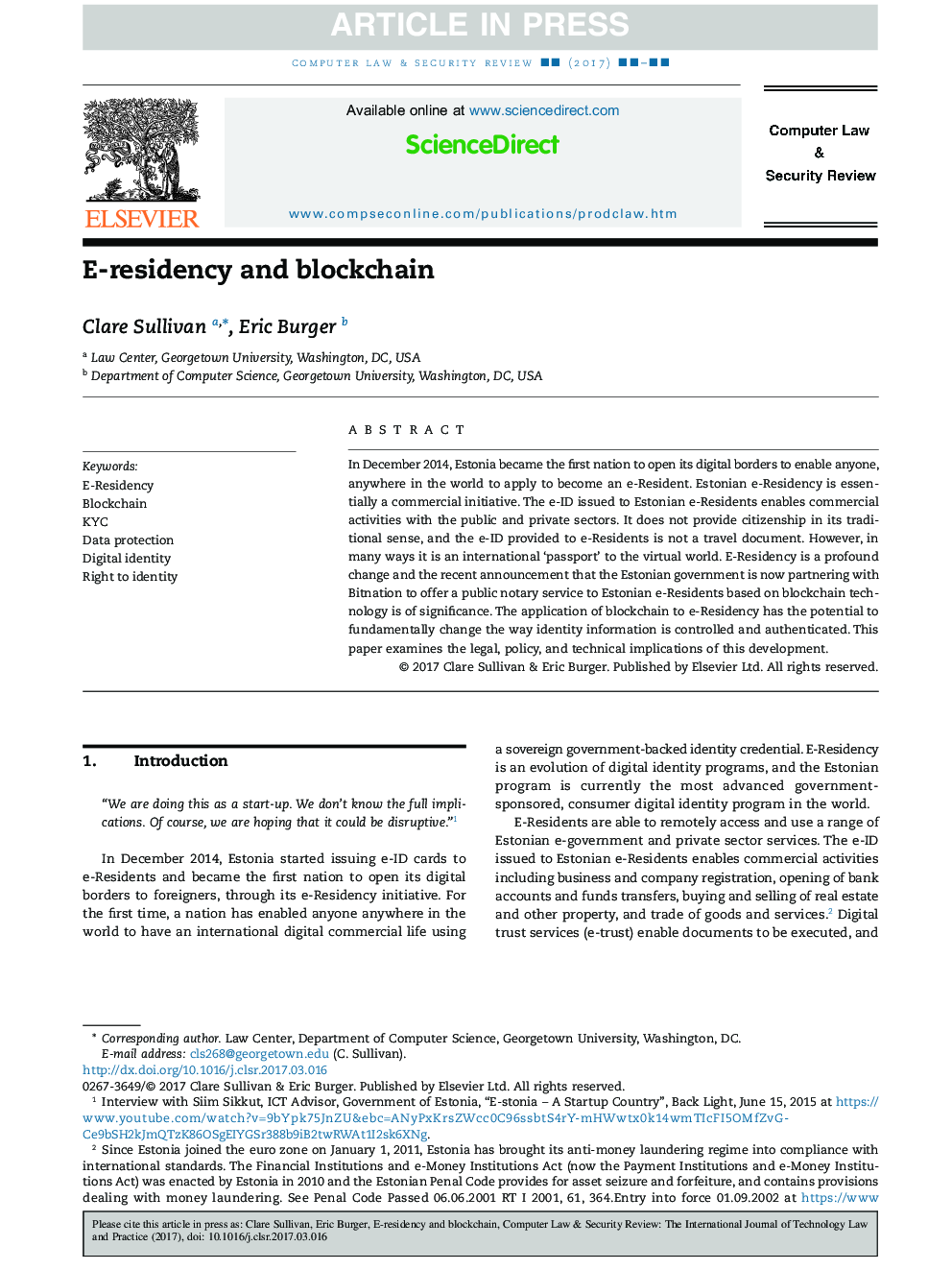| Article ID | Journal | Published Year | Pages | File Type |
|---|---|---|---|---|
| 4957903 | Computer Law & Security Review | 2017 | 12 Pages |
Abstract
In December 2014, Estonia became the first nation to open its digital borders to enable anyone, anywhere in the world to apply to become an e-Resident. Estonian e-Residency is essentially a commercial initiative. The e-ID issued to Estonian e-Residents enables commercial activities with the public and private sectors. It does not provide citizenship in its traditional sense, and the e-ID provided to e-Residents is not a travel document. However, in many ways it is an international 'passport' to the virtual world. E-Residency is a profound change and the recent announcement that the Estonian government is now partnering with Bitnation to offer a public notary service to Estonian e-Residents based on blockchain technology is of significance. The application of blockchain to e-Residency has the potential to fundamentally change the way identity information is controlled and authenticated. This paper examines the legal, policy, and technical implications of this development.
Related Topics
Physical Sciences and Engineering
Computer Science
Computer Science (General)
Authors
Clare Sullivan, Eric Burger,
